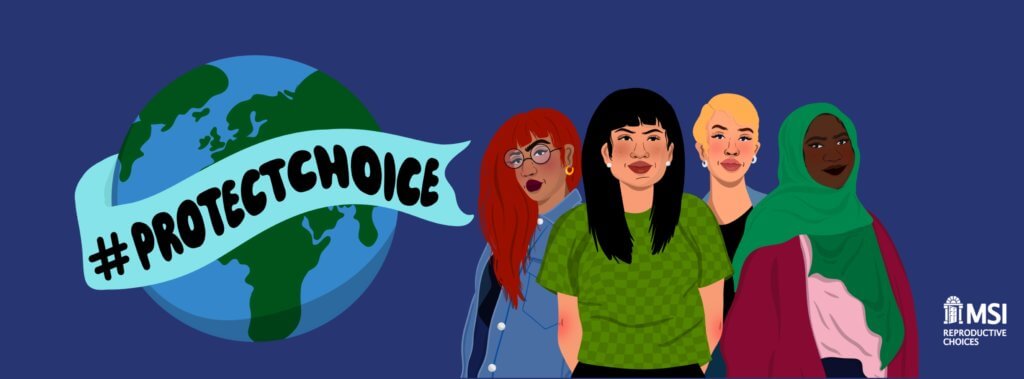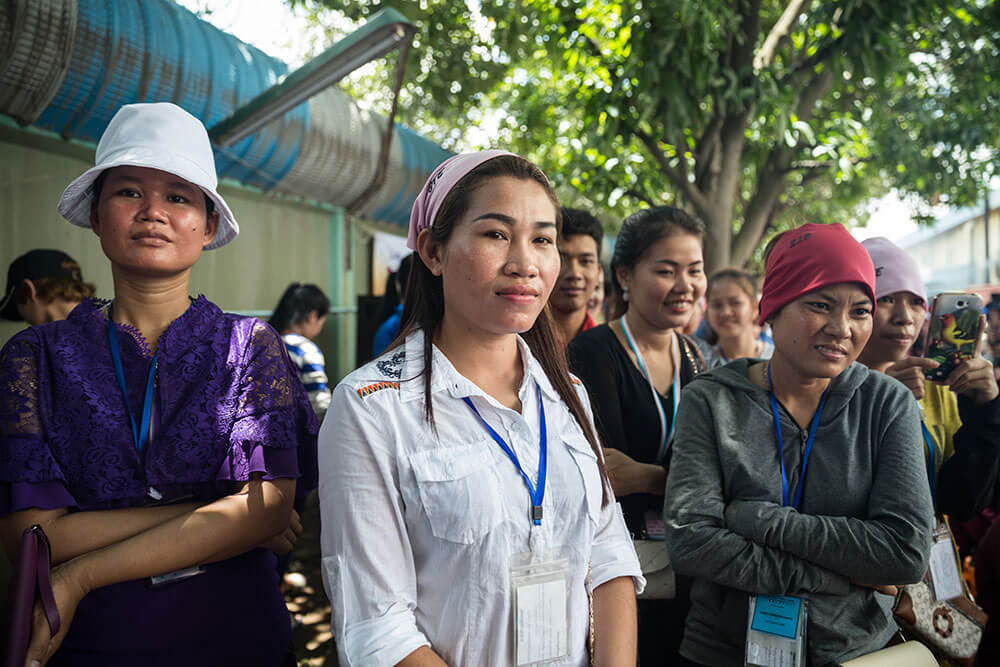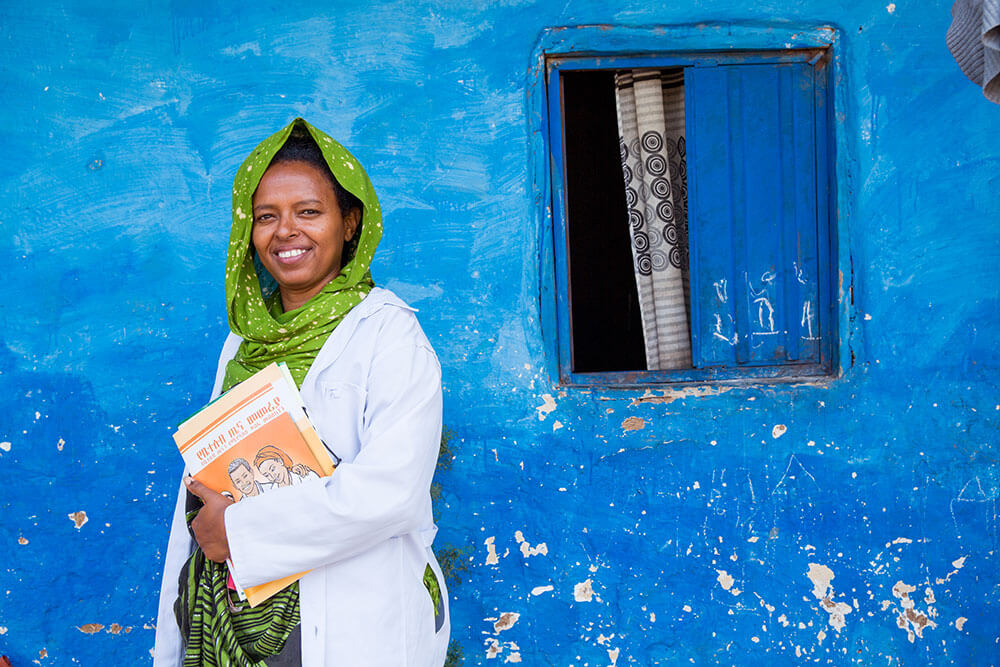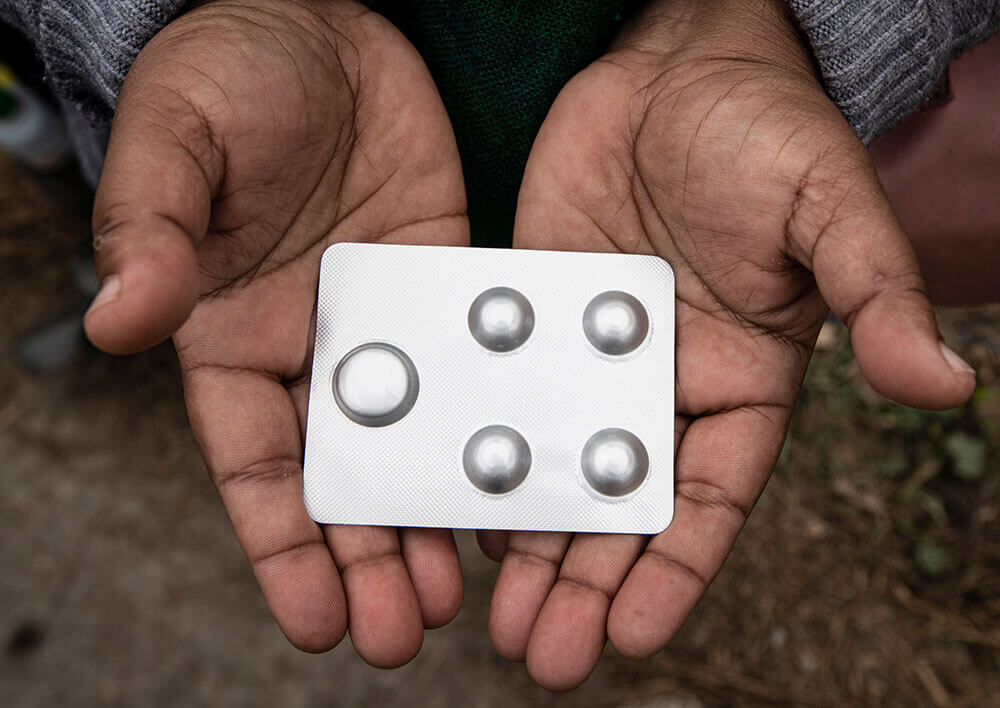The forgotten tragedy of unsafe abortion
In the 50 years since Roe v Wade protected the right to abortion, Americans have forgotten the tragic toll of unsafe abortion. In countries that liberalized their abortion laws more recently, the deadly consequences of abortion restrictions are still fresh in their memory.
The global toll of unsafe abortion
About one in every four pregnancies ends in abortion, but not every woman has the option to end her pregnancy safely. Worldwide, about 45% of abortions are unsafe, of which 97% occur in developing countries. Unsafe abortion is a leading cause of pregnancy-related death and injury, causing an estimated 22,800 deaths each year and about seven million injuries. These deaths are entirely preventable when women have access to safe, legal abortion care.
We believe in a world where no one is forced to risk their health or their life for the right to determine their own future. That’s why we are committed to ending unsafe abortion for good. By providing safe abortion services and support when and where they’re needed, and where the legal context allows, we help women to make the reproductive choices that are best for them and reduce the number of women that are forced to seek unsafe services.
At MSI, our providers are passionate about abortion care because they’ve seen firsthand the difference that it makes in women’s lives, and the dire consequences when safe care isn’t available. MSI abortion providers in Cambodia, Ethiopia, and Nepal shared the difference legalizing abortion has made in their countries.

Cambodia
Sophornnary, an MSI provider, is still haunted by the memory of a woman she had to turn away more than a decade ago. “She came to me seeking my help after an unsafe abortion and told me she couldn’t stop the bleeding.
“I had to tell her to go to the hospital. Given the law in Cambodia at the time, I didn’t dare to help her. I didn’t want people to say that she died under my care.”

Before Cambodia legalized abortion 25 years ago, “the death rate from unsafe abortion was high” said Sophornnary. “But so too were abortion rates.” Restricting abortion doesn’t reduce abortion rates, it just pushes women to seek unsafe options. “Many women ended up with heavy bleeding, and there were some that couldn’t be saved.”
Doctors and nurses at MSI remember what it was like under restrictive abortion policies. With no training on abortion care, health providers turned to homemade methods. These were often unsafe, risking women’s lives in the process.
After abortion was legalized, Sophornnary started working with MSI to raise awareness of contraceptive methods and safe abortion. She now sees about 10 women for safe abortion services a month. She has noticed a huge change for women in Cambodia.
“The most crucial thing about the law was that it decreased the rate of maternal mortality,” she said. Since Cambodia legalized abortion, the maternal mortality rate dropped dramatically. The rate has decreased from 432 maternal deaths per 100,000 live births to under 170 per 100,000.
When safe abortion care is available, women’s lives are saved.
Ethiopia
Before Ethiopia liberalized its abortion laws in 2005 to help tackle the country’s high maternal mortality rates, unsafe abortion contributed to nearly a third of all maternal deaths in the country. “The law was very strict. But as in many contexts, the risks did not deter women and abortion rates remained high,” Abebe Shibru, MSI Ethiopia’s country director said.

“In an average week, around two or three women died in clinics across the country. At that time, it was normal to see half of the delivery and gynecology rooms in Ethiopia filled with women who needed immediate medical assistance.”
With no legal routes to access an abortion, women faced dangerous alternatives. These could cause infections, lifelong disabilities, and were sometimes fatal.
“The methods women used at the time to try and terminate an unwanted pregnancy were desperate. Ranging from traditional remedies including tree roots and herbs, women would also insert harmful objects like catheters and metallic tools inside of them to try and end their pregnancy. This caused uterine perforation and organ injury.”
Since 2005, Ethiopia has made huge strides in making safe abortion accessible for women in the country. Recent studies have shown that maternal mortality due to unsafe abortion has dropped sharply from a 33% to 1%.
Abebe added: “The change in abortion laws in Ethiopia has helped us to serve more women with safe and effective high-quality care. The rooms and the beds once reserved for post-abortion care are now used to help women to access safe abortion and a range of sexual and reproductive health services.”
Nepal
Lila started working for MSI just as Nepal legalized abortion in 2002. Born in Sindhupalchowk, a rural region to the north of Kathmandu, Lila knows all too well about the barriers that women and girls in remote areas face accessing sexual and reproductive health services.
Before Nepal liberalized its abortion law, 20% of its maternal deaths were attributable to unsafe abortion, one of the highest in the region. Thanks to the tireless work of courageous abortion providers like Lila, this has now dropped to around 6%.
“The services we provide now are very different from when I first started as a midwife,” she said. “Before abortion was legalized in Nepal, I often saw clients coming in with severe pelvic bleeding, including women who had visited traditional providers to access abortion.”
She added: “Sometimes clients came into the clinic after being advised by traditional providers to use a 4cm long “medicinal stick” that was inserted in their vaginas. It was so distressing to see women going through that situation every day and for women to have to hide their pregnancies as it was illegal to have an abortion.”
Since the start of the pandemic, MSI Nepal has expanded access to safe abortion through the provision of abortion pills via telemedicine. Working closely with the government to deliver medical abortion at home, Nepal protected women’s access to choice at a critical time.
“The situation is completely different now. Women across the country can access safe abortion services. And since the start of the pandemic, we’ve been able to support women to access medical abortion services at home,” said Lila.

Throughout the years and in dozens of countries with a wide range of laws governing abortion, MSI has witnessed first-hand that bans and restrictions do not reduce the abortion rate; they just make abortion less safe. In fact, in countries with restrictive laws, the percentage of unintended pregnancies ending in abortion has increased by 14 per cent over the last 30 years.
But when restrictions on abortion are lifted, women’s lives are saved. 59 countries have relaxed restrictions around abortion in the last 30 years. This includes 18 countries that have overturned complete bans on abortion.
- Several countries have taken steps to make abortion care more widely available through the provision of telemedicine, which many clients prefer.
- Other countries have acted to make medication abortion more available through pharmacies.
- Nepal has added abortion care to its universal health coverage, making safe abortion affordable.
- Kenya has developed new guidance and training around life-saving post abortion care.
By reversing Roe v. Wade, the United States has gone against a tide of positive changes seen in other countries across the world. The US joins the ranks of only three other countries to have restricted access in that time: Poland, El Salvador, and Nicaragua. The anti-choice opposition is using misleading rhetoric to conceal the basic truth: That banning abortion hurts women.
For almost 50 years, access to safe, legal abortion in America was protected under the Constitution. In those 50 years, we heard fewer and fewer stories of tragic outcomes from unsafe abortion. The US made progress in women’s health and saw a decline in the demand for abortion and a decline in deaths associated with unsafe abortion.
We must not forget what choice has meant to women’s health. We must continue to fight for the right to choose.




